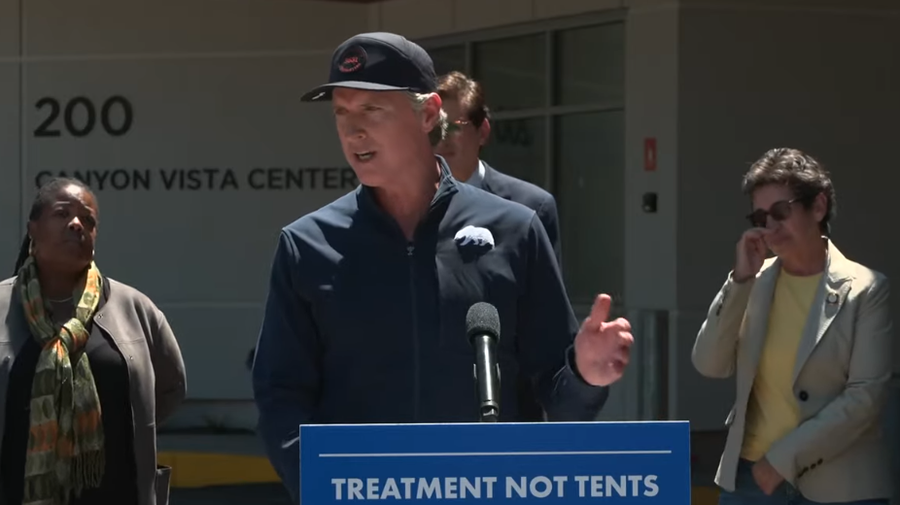California plans to allocate $3.3 billion for mental health and substance use treatment facilities

Under mounting pressure to tackle California’s growing homelessness crisis, Governor Gavin Newsom announced Tuesday that his administration will accelerate the availability of $3.3 billion for counties and private developers to begin constructing additional behavioral health treatment centers. This move is part of his broader initiative to fund housing and substance abuse programs.
This funding, the first from a recently passed ballot measure, aims to assist cities, counties, tribes, and developers in building or renovating treatment centers and clinics. Voters narrowly passed the measure in March following Newsom’s strong endorsement, positioning it as a key element in the state’s homelessness reduction strategy.
The measure allows the state to borrow nearly $6.4 billion to construct 4,350 housing units. Additionally, it mandates that counties allocate two-thirds of the funds generated from a tax on millionaires to housing and programs for homeless individuals with severe mental health or substance abuse issues. Applications for funding will open in July.
Newsom, speaking against the backdrop of an ongoing construction project for 117 psychiatric beds near Redwood City, urged local governments to expedite their construction efforts.
“It’s time to do your job. It’s time to get things done,” Newsom declared. “You asked for these reforms, we’ve provided them. Now it’s time to deliver.”
Governor Newsom, a key advocate for President Joe Biden’s reelection campaign and a speculated presidential hopeful, has made addressing homelessness a major political focus. Despite California’s multibillion-dollar efforts to reduce homelessness, there has been limited improvement in cities like Los Angeles.
California accounts for nearly a third of the United States’ homeless population, with approximately 171,000 Californians in need of housing. The state’s current inventory of 5,500 behavioral health beds falls short of the 8,000 additional units needed to effectively address mental health and addiction issues.
The grant money announced by Newsom could support various programs, such as short-term crisis facilities, addiction programs, outpatient services, and locked treatment beds. The state will assess the projects based on local service gaps.
State Senator Susan Eggman, who authored a bill incorporated into the ballot measure, commented on the potential funding for locked treatment beds, stating, “Voluntary care is always best, but sometimes we need a little bit more. Don’t say no. Let’s say how.”
Some social providers and county officials opposed the proposition, expressing concerns that the new funding structure from the millionaire tax could jeopardize programs aimed at preventing homelessness. Disability rights advocates also worried about the possibility of more involuntary confinement.
State officials previously indicated that the application process will be streamlined, although there won’t be a specific deadline for proposed project completion. Some proposals, particularly those for renovating existing facilities, could be implemented within a few months. Newsom stated that proposals will be approved in the fall so that funds can be distributed to local governments by early next year.
Mark Callagy, the executive officer in San Mateo County, noted that the bond funding will enable counties to expedite the provision of necessary services, stating, “Now we can dream bigger because of this.”
Newsom, who advocated for a new law last year to facilitate involuntary treatment for individuals with mental health and addiction issues, criticized counties on Tuesday for not yet implementing the program, despite giving most counties a deadline of December to launch their efforts. Eight counties implemented the initiative last year and have received 450 applications in the last six months, according to the governor’s office.
“The state’s vision is realized at the local level,” Newsom remarked. “We can’t do that job. They need to do their job.”
The state also plans to make housing bond funding available by the end of this year, totaling nearly $2 billion. This funding will support the expansion of existing state housing initiatives, including a $3.5 billion initiative to convert rundown motels into housing for the homeless.

